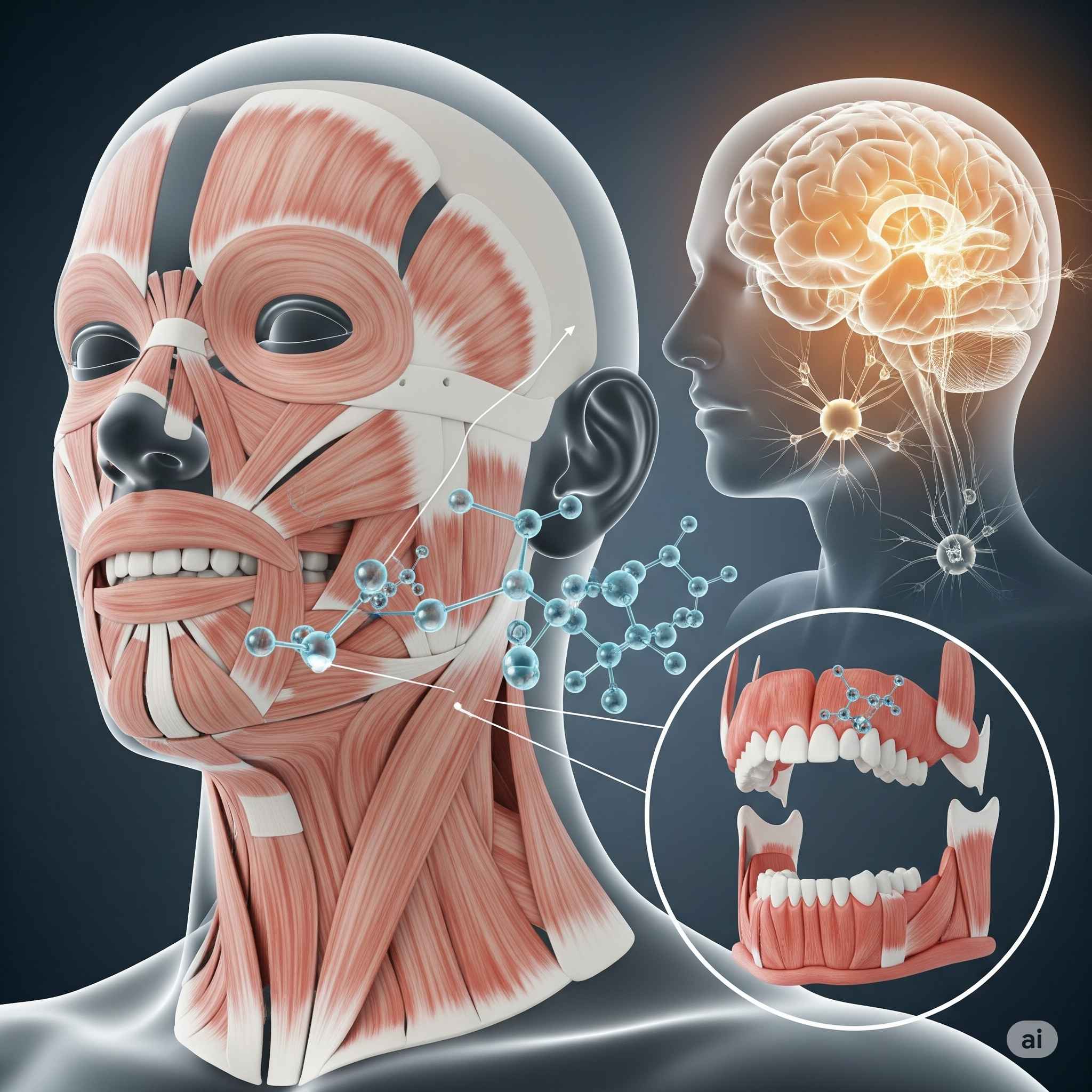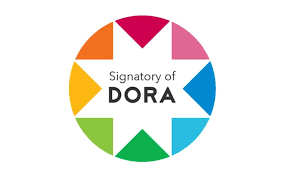Eficacia del tratamiento con toxina botulínica en pacientes adultos con bruxismo, ansiedad y depresión
DOI:
https://doi.org/10.56124/sapientiae.v8i17.036Palabras clave:
Ansiedad, Bruxismo, Depresión, Eficacia, Toxina botulínicaResumen
El bruxismo es un trastorno caracterizado por el rechinamiento o apretamiento involuntario de los dientes, frecuentemente asociado a factores psicológicos como la ansiedad y la depresión. Esta condición puede generar consecuencias significativas en la salud bucodental y en la calidad de vida de los pacientes adultos. En los últimos años, la toxina botulínica ha emergido como una alternativa terapéutica prometedora para el manejo de este trastorno, especialmente en casos donde coexisten desajustes emocionales. El objetivo de esta investigación es analizar la eficacia del tratamiento con toxina botulínica tipo A en adultos que presentan bruxismo junto con síntomas de ansiedad y depresión. Para ello, se realizó una revisión bibliográfica sistemática de estudios clínicos, revisiones y metaanálisis publicados en bases de datos de reconocido prestigio científico. Los resultados extraídos de la literatura indican que la aplicación de aquella toxina en los músculos maseteros y temporales reduce significativamente la intensidad del trastorno, alivia el dolor muscular y mejora la funcionalidad mandibular, con efectos positivos también sobre los síntomas emocionales asociados. Así mismo, se reporta una baja incidencia de efectos adversos, generalmente leves y transitorios. En conclusión, la evidencia actual respalda el uso de la toxina botulínica como una opción eficaz y segura en el tratamiento del dicho problema en adultos, principalmente cuando está vinculado a trastornos de ansiedad y depresión, aunque se recomienda continuar con estudios longitudinales que refuercen estos hallazgos.
Descargas
Citas
Belenda González, I., Montero, J., Gómez Polo, C., & Pardal Peláez, B. (2025). Evaluation of the relationship between bruxism and/or temporomandibular disorders and stress, anxiety, depression in adults: A systematic review and qualitative analysis. Journal of Dentistry, 156, 105707. https://doi.org/10.1016/j.jdent.2025.105707
Buzatu, R., Luca, M. M., Castiglione, L., & Sinescu, C. (2024). Efficacy and safety of botulinum toxin in the management of temporomandibular symptoms associated with sleep bruxism: a systematic review. Dentistry Journal, 12(6), 156. https://doi.org/10.3390/dj12060156
Chen, Y., Tsai, C.-H., Bae, T. H., Huang, C.-Y., Chen, C., Kang, Y.-N., & Chiu, W.-K. (2023). Effectiveness of botulinum toxin injection on bruxism: A systematic review and meta-analysis of randomized controlled trials. Aesthetic Plastic Surgery, 47, 775–790. https://doi.org/10.1007/s00266-023-03256-8
Cifuentes Harris, J., et al. (2022). Bruxism: etiopathogenesis, diagnosis and its repercussions in adults. Review of the literature. Odontol. Sanmarquina, 25(4), e23839. Enlace: https://doi.org/10.15381/os.v25i4.23839
Colgate Editorial. (2023). Are there any side effects of using botulinum toxin for bruxism? Colgate Oral Health. https://www.colgate.com/en-us/oral-health/bruxism/botox-for-bruxism-learn-whats-right-for-you
Cruse, B., Dharmadasa, T., White, E., Hollis, C., Evans, A., Sharmin, S., et al. (2022). Efficacy of botulinum toxin type A in the targeted treatment of sleep bruxism: a double blind, randomised, placebo controlled, crossover study. BMJ Neurology Open, 4, e000328. https://doi.org/10.1136/bmjno-2022-000328 sciencedirect.com+7researchgate.net+7mdpi.com+7
De la Torre Canales, G., Câmara-Souza, M. B., Muñoz Lora, V. R. M., Guarda-Nardini, L., Conti, P. C. R., & Manfredini, D. (2020). Is there an association between anxiety/depression and temporomandibular disorders in adults? A systematic review and meta-analysis. Journal of Oral Rehabilitation, 47(5), 395–
Di Francesco, F., Lanza, A., Di Blasio, M., Vaienti, B., Cafferata, E. A., Cervino, G., Cicciù, M., & Minervini, G. (2022). Application of botulinum toxin in temporomandibular disorders: a systematic review of randomized controlled trials (RCTs). Applied Sciences, 12(23), 12409. https://doi.org/10.3390/app122312409
Fernández Núñez, T., Amghar Maach, S., & Gay Escoda, C. (2019). Efficacy of botulinum toxin in the treatment of bruxism: systematic review. Medicina Oral, Patología Oral y Cirugía Bucal, 24(4), e416–e424. https://doi.org/10.4317/medoral.22923 pubmed.ncbi.nlm.nih.gov+1link.springer.com+1
Fernández Rodríguez, A., López Gómez, V., & Ruiz Martínez, R. (2023). Adverse effects of botulinum toxin A injections for bruxism and masseter hypertrophy: literature review. Journal of Oral Rehabilitation, 50(5), 412–420. https://doi.org/10.1111/joor.13215
Finzi, E., & Rosenthal, N. E. (2016). Treatment of depression with onabotulinumtoxinA: A randomized, double-blind, placebo controlled trial. Journal of Psychiatric Research, 81,1–6. https://doi.org/10.1016/j.jpsychires.2016.06.009
Frugone Zambra, R., & Rodríguez, C. (2003). Bruxismo. Avances en Odontoestomatología, 19(3), 123–130.
https://scielo.isciii.es/scielo.php?pid=S0213-12852003000300003&script=sci_arttext
Guarda-Nardini, L., Manfredini, D., Salamone, M., & Ferronato, G. (2012). Efficacy of botulinum toxin in treating myofascial pain in bruxers: A controlled placebo pilot study.
Koo, H. J., Hu, H., Kim, W., & Yi, K. H. (2023). Sonographic evidence of masseteric fibrosis after repeated botulinum toxin injections. Journal of Cosmetic Dermatology, 22(4), 987–993. https://doi.org/10.1111/jocd.15789
Koutsimani, P., Montgomery, A., & Georganta, K. (2019). The relationship between burnout, depression, and anxiety: A systematic review and meta-analysis. Frontiers in Psychology, 10, 284. https://doi.org/10.3389/fpsyg.2019.00284
Manfredini, D., Winocur, E., Guarda-Nardini, L., Paesani, D., & Lobbezoo, F. (2020). Epidemiology of bruxism in adults: A systematic review of the literature. Journal of Orofacial Pain, 34(1), 1-11. https://doi.org/10.11607/ofph.2411
Mulrow, C. D., Cook, D. J., & Davidoff, F. (1997). Systematic reviews: critical links in the great chain of evidence. Annals of Internal Medicine, 126(5), 389–391. https://doi.org/10.7326/0003-4819-126-5-199703010-00008
Page, M. J., McKenzie, J. E., Bossuyt, P. M., Boutron, I., Hoffmann, T. C., Mulrow, C. D., Shamseer, L., Tetzlaff, J. M., Akl, E. A., Brennan, S. E., Chou, R., Glanville, J., Grimshaw, J. M., Hróbjartsson, A., Lalu, M. M., Li, T., Loder, E. W., Mayo Wilson, E., McDonald, S., … Moher, D. (2021). The PRISMA 2020 statement: an updated guideline for reporting systematic reviews. Systematic Reviews, 10(1), 89. https://doi.org/10.1186/s13643-021-01626-4
Park, M. Y., Ahn, K. Y., et al. (2021). Scientific review of the aesthetic uses of botulinum toxin type A. Archives of Craniofacial Surgery, 22(1), 1–10. https://doi.org/10.7181/acfs.2021.00003
Patel, J., Cardoso, J. A., & Mehta, S. (2019). A systematic review of botulinum toxin in the management of patients with temporomandibular disorders and bruxism. British Dental Journal, 226(9), 667–672. https://doi.org/10.1038/s41415-019-0257-z sciencedirect.com+13sciencedirect.com+13researchgate.net+13mdpi.com+4pubmed.ncbi.nlm.nih.gov+4pubmed.ncbi.nlm.nih.gov+4
Rempel, L., Malik, R. N., Shackleton, C., Calderón Juárez, M., Sachdeva, R., & Krassioukov, A. V. (2024). From Toxin to Treatment: A Narrative Review on the Use of Botulinum Toxin for Autonomic Dysfunction. Toxins, 16(2), 96. https://doi.org/10.3390/toxins16020096
Saracutu, O. I., Manfredini, D., Bracci, A., Cagidiaco, E. F., Ferrari, M., & Colonna, A. (2024). Self reported mandible bracing and teeth clenching are associated with anxiety and depression traits in a group of healthy young individuals. Journal of Oral & Facial Pain and Headache, 38(4), 85–90. https://doi.org/10.22514/jofph.2024.041
Sendra, L. A., Antunes, L. A. A., Barboza, E. P. (2024). Use of Botulinum Neurotoxin Type A in the Management of Primary Bruxism in Adults: An Updated Systematic Review. J. Prosthet. Dent., 132, 93–99. https://doi.org/10.1016/j.prosdent.2024.01.002
Shehri, Z. G., Alkhouri, I., Hajeer, M. Y., Haddad, I., & Abu Hawa, M. H. (2022). Evaluation of the efficacy of low dose botulinum toxin injection into the masseter muscle for the treatment of nocturnal bruxism: a randomized controlled clinical trial. Cureus, 14, e32180. https://doi.org/10.7759/cureus.32180 pmc.ncbi.nlm.nih.gov
Shim, Y. J., Lee, H. J., Park, K. J., Kim, H. T., Hong, I. H., & Kim, S. T. (2020). Botulinum toxin therapy for managing sleep bruxism: a randomized and placebo controlled trial. Toxins, 12(3), 168. https://doi.org/10.3390/toxins12030168 sciencedirect.com+15pmc.ncbi.nlm.nih.gov+15researchgate.net+15
Smith, E., Brown, J., & Davis, M. (2022). Safety profile of targeted botulinum toxin type A injections in sleep bruxism: a randomized controlled trial. BMJ Neurology Open, 4(2), e000328. https://doi.org/10.1136/bmjno-2022-000328
Trilli, I., Ferrante, L., Pezzolla, C., Sabatelli, F., Memè, L., & Bambini, F. (2024). A narrative review on the use of botulinum toxin in the treatment of bruxism. Oral and Implantology, 16(3), S1 492–505. https://doi.org/10.11138/oi.v16i3(S1).94
Wieckiewicz, M., Paradowska-Stolarz, A., & Wieckiewicz, W. (2020). Psychosocial aspects of bruxism: The most paramount factor influencing teeth grinding. BioMed Research International, 2020, 1–7. https://doi.org/10.1155/2020/2125910
Yacoub, S., Ons, G., & Khemiss, M. (2025). Efficacy of botulinum toxin type A in bruxism management: A systematic review. Dent Med Probl, 62(1), 145–160. https://doi.org/10.17219/dmp/186553
Yap, A. U., Chua, A. P., & Tan, K. B. (2021). Sleep bruxism: Current knowledge and contemporary management. Journal of Conservative Dentistry, 24(1), 1-6. https://doi.org/10.4103/JCD.JCD_516_20
Zhang, L. D., Liu, Q., Zou, D. R., & Yu, L. F. (2016). Occlusal force characteristics of masseteric muscles after intramuscular injection of botulinum toxin A for treatment of temporomandibular disorder. British Journal of Oral and Maxillofacial Surgery, 54(7), 736–740. https://doi.org/10.1016/j.bjoms.2016.04.008 pmc.ncbi.nlm.nih.gov+11pubmed.ncbi.nlm.nih.gov+11jofph.com+11

Publicado
Cómo citar
Número
Sección
Licencia
Derechos de autor 2025 Revista Científica Multidisciplinaria SAPIENTIAE. ISSN: 2600-6030

Esta obra está bajo una licencia internacional Creative Commons Atribución-NoComercial-CompartirIgual 4.0.

2.jpg)

















